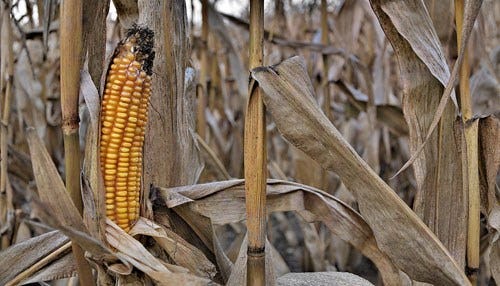Indiana Farmland Values Stable, Credit Conditions Rocky
 (stock image Pixabay/Jim Garecki)
(stock image Pixabay/Jim Garecki)
Subscriber Benefit
As a subscriber you can listen to articles at work, in the car, or while you work out. Subscribe NowINDIANAPOLIS — A new report from the Chicago district of the Federal Reserve Bank shows agricultural credit conditions in this part of the Midwest continue to decline. But that same report also shows stability in the value of good farmland.
The data shows the value of more productive farmland in Indiana remains unchanged from last year while the five-state district overall saw a decline of one percent.
The report also shows Indiana land values are three percent higher than the last survey conducted in July, the highest increase of the five states in the region.
The district encompasses the northern half of Indiana and Illinois, the entire states of Iowa and Michigan and about half of Wisconsin.
“The district has not experienced a year-over-year change in its agricultural land values of greater than one percent over the past 12 quarters—an unprecedented streak of relative stability in farmland values,” said David Oppedahl, an economist with the Federal Reserve Bank in Chicago.
Oppedahl says while 76 percent of survey respondents expected the district’s farmland values to be stable during the fourth quarter of 2019, there was a downward tilt to the expectations. Only six percent of bankers anticipated an increase in farmland values in the final quarter of this year and 18 percent anticipated a decrease.
That pessimism is also reflected in their outlook for agricultural credit conditions.
For the July through September period, 32 percent of ag bankers saw lower repayment rates on non-real-estate farm loans than a year earlier. Those loans are typically used to pay for operating expenses on farms.
In Oppedahl’s report summary, he noted one banker from Indiana observed “an overall sense of unease among our farmers.”
The Chicago Fed says for six straight years, repayment rates for non-real-estate farm loans have been lower each quarter relative to the same quarter of the year before, while loan renewals and extensions have been higher.
With the farm sector facing some volatility, current conditions could force some farmers out, while providing opportunities for others, said Oppedahl.
“I expect this market will eliminate highly leveraged operators and allow others to expand their operations,” commented an unidentified Indiana banker
Other bankers in the region said trade issues continue to cause uncertainty and stress among the rural bank customers.
